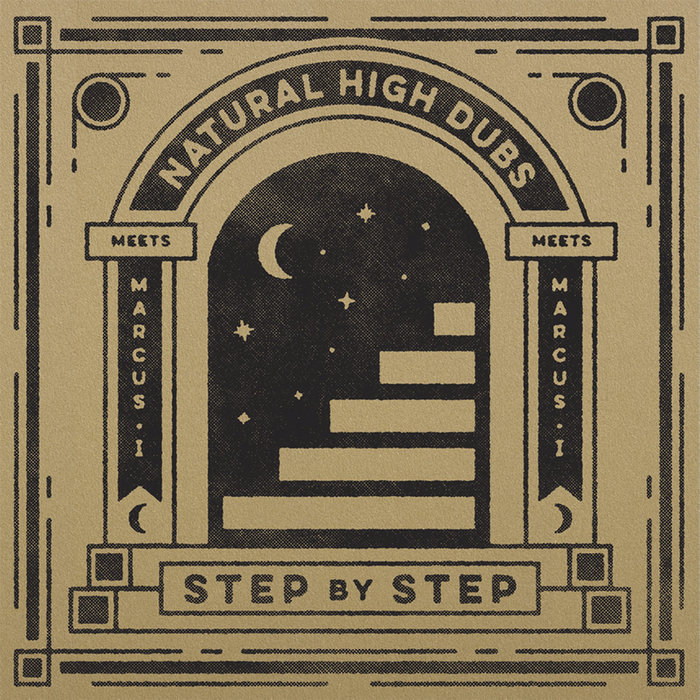
Natural High Dubs ft Marcus I – Step by Step – Berry's Records
this blog is GROOVY – check out great Soul, Funk, Jazz, Hip Hop, Bass, Breaks , Reggae, House n many more TUNES
Bourges, a charming city in the heart of France, isn’t just known for its beautiful medieval architecture and vibrant markets; it’s also got some serious musical chops! Over the years, Bourges has blossomed as a hub for various music genres – from folk melodies to rock anthems. So grab your favorite vinyl or stream that playlist, because we’re going on a funky journey through the history of music in Bourges!
The story kicks off way back in the day when folk music played a central role in Bourges. Picture this: townsfolk gathered around firesides singing traditional tunes passed down from generation to generation. It was all about storytelling! These early artists used their voices and simple instruments like lutes and flutes to share tales of love, loss, and local legends.
As time danced on into the 20th century, jazz began sneaking into the scene. By then, everyone wanted to swing! Jazz clubs popped up like mushrooms after rain showers. Local musicians started experimenting with rhythms and improvisation – filling bars with soulful saxophone solos that made even stone statues tap their feet.
Fast forward to the 1960s – here comes rock ‘n’ roll riding in on its groovy wave! Bands like Les Gens d’Air found inspiration from British rock bands and infused hot riffs with French flair. Suddenly, everybody wanted to strum guitars at home while dreaming about fame (and possibly wearing bell-bottoms).
In 1977, something magical happened: Le Printemps de Bourges Festival was born! This annual event transformed Bougese life by showcasing eclectic acts across multiple genres such as pop, electro, hip-hop – you name it! Now musicians had a platform where they could strut their stuff without worrying about fancy pants or judgmental grandma vibes.
And get this: one year at Le Printemps de Bourges:
A famous French artist lost his pants during performance but continued undeterred—because nothing can stop real rock stars!!
The late ’80s brought even more variety into town with electronic beats entering clubs everywhere; DJs were spinning records alongside live bands creating hybrid sets full of energy!
Have you ever heard of “La Chanson Française”? It’s like mixing jazz’s improvisational style with poetry—a true mood-lifter. Artists such as Noir Désir pushed these boundaries further while tackling serious themes through catchy choruses that make you want to sing along—even if you’re totally off-key!
Let’s sprinkle some humor amidst all these musical milestones:
Rockstar Façade: One local musician gained quite a reputation for showing up dressed extravagantly—glittery jackets shimmering under disco lights—only for folks later finding out he worked part-time as an accountant (talk about balancing books AND beats)!
Noisy Neighbors: There was once an infamous noise complaint filed against an aspiring punk band rehearsing too close near someone’s flowerbed (oooops!). They eventually found common ground over tea—with flowers blooming beautifully nearby.
The Missing Guitar Pick: Legend has it that during Le Printemps de Bourges one year; lead guitarist accidentally tossed his pick into hazy crowd frenzy—it took ages before someone finally returned it safe…alongside confetti pieces stuck onto festival-goers’ hairdos!
Local Legend—Loud Larry: For decades there existed “Loud Larry,” who would bring vacuum cleaners instead of microphones whenever he performed—as if trying hard ensure no one misses him serenading outside cafés…with questionable pitch accuracy every single time.
Today’s vibe? You bet it remains electrifying—with diverse talents popping up every season at Le Printemps de Bourges alongside new venues catering specifically towards indie acts hustling hard-fresh sounds making hearts race anew among passionate fans everywhere!
New generations are embracing technology too; creating art not only via traditional means but expanding realms using apps—all while keeping roots alive & well throughout cultural traditions passed down lovingly between friends sitting cozily together reminiscing good ol’ times gone by…
So whether you’re jamming out at home solo-style or catching shows around your neighborhood café sip’n cocktails—we celebrate our beloved culture starting right here within these spirited streets echoing cherished melodies reflecting journeys conquered collectively over ages past now intertwined forever onward toward future generations yet-to-come!!
From humble beginnings wrapped warm within tradition stitches built upon bluesy chords swinging steadily throughout growth spurts across varying styles- musicales showcased make sure be prepared enjoy spontaneous moments shared both big AND small alike discovered simply strolling leisurely beneath those magnificent Baobab trees hosting delightful conversations sparking ideas bursting creativity paving paths deserving exploration deeply nestled within marvelous charms enchanting everyone lucky enough waltz upon them exploring OUR rich history behind beloved Bourgedian soundscapes calling forth inspiration endlessly awaiting eager ears/state-of-minds ready dive deep discover more chill vibrations emanating straight-from-every-heartfelt beat pulsing joyfully relentlessly rhythmically harmonious celebrating artistic beauty flourishings endless possibilities dreamed dreams unified together harmoniously resonating freely evermore surrounding precious echoes staying alive sublime forevermore echoing splendidly unbrokenly onward powering waves uplifting spirits eternally brightening raising joyously enlightenment celebrated joyful awareness illuminating soul…taking steps groove forth leaving footprints worth following proudly claiming legacy belongs us ALL ahead laughter-filled moments festively shining resembling flares twinkling dazzling delightingly rebounding radiantly sharing stories embracing cultivating connections so let dance sway humbly onward play;
Let’s keep those grooves flowin’, folks! 🎶✨

Natural High Dubs ft Marcus I – Step by Step – Berry's Records